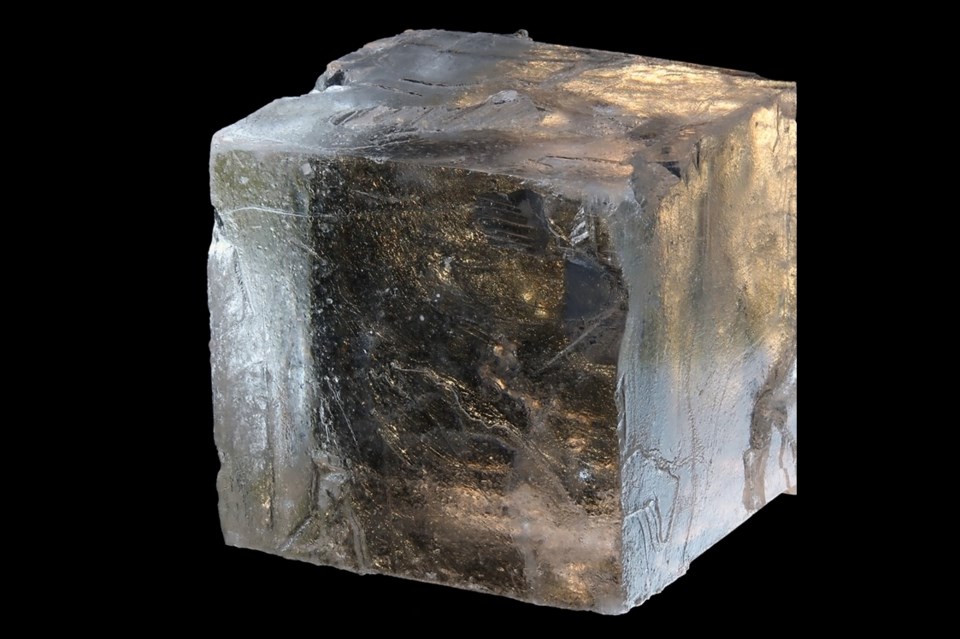All across Canada, you'll find former Saultites who heap praise on their hometown's ability to clean up after winter storms.
"I used Sault Ste. Marie as an example," says Kerry Diotte, who moved to Alberta four decades ago and laid the foundation for a career in municipal and federal politics by writing newspaper columns describing the awesome snow and ice control back in the Sault.
"I constantly said, places like Sault Ste. Marie and other places I knew in Ontario were far, far superior in terms of getting it done quickly, moving a lot of snow, clearing snow from sidewalks," said Diotte, who's now seeking the Conservative nod to pursue a third term of office representing the federal riding of Edmonton Griesbach.
"Unfortunately, western Canada has really fallen behind in terms of in terms of matching places like Sault Ste. Marie and other municipalities in Ontario," he told SooToday on Wednesday.
Last week, Sault Ste. Marie city council agreed to look into changing the way we deal with big snowstorms, and to seek help from western Canada construction giant Ledcor Group.
Born 75 years ago in Leduc, Alta, Ledcor is now an international company based at headquarters in Vancouver and San Diego.
It has 10,000 employees working out of 20 office locations serving the civil and infrastructure, oil and gas, pipeline, building, mining, power, and telecommunications sectors.
In recent years, the company has been winning awards for its work in mitigating the risk of salt from its highway maintenance operations contaminating vegetation and ground water
This year Ledcor won a contract with Ontario's transportation ministry to maintain highways in the Sault Ste. Marie area.
Last Monday, city councillors directed that Ledcor be approached to explore the possibility of a pilot project using the company's technology for pre-wetting road salt and sand just before those materials are applied to a road surface.
Pre-wetting has been used in road maintenance since the 1960s.
The idea is to spray rock salt or sand with a liquid de-icing agent (usually salt brine).
Once wet, salt becomes stickier, less likely to bounce off the road or be knocked off by passing traffic.
This allows up to 30 per cent less salt to be used, lowering material cost and reducing environmental impact.
Pre-wetting salt allows ice melting to start earlier, breaking the ice-road bond.
There's also better salt penetration into the ice and snow pack.
Ledcor has recently been upgrading its highway maintenance yards to prevent salt from contaminating sensitive areas including ditches and groundwater.
Mitigation measures have included:
- altering traffic flow to isolate contaminated areas
- changing salt loading and handling procedures
- confining contaminated snow within storage tanks or containment ponds
- paving areas at risk of contamination to make the ground impermeable to salt
- grading the ground with an inward slope to keep contaminated water within the yard
- capturing contaminated water with a catch basin and sump system with above-ground storage
- recirculating contaminated water to reduce off-site disposal and produce salt brine in-house as opposed to buying it
If Sault Ste. Marie decides to adopt pre-wetting methods, it won't happen immediately.
Among other things, the city must order new salt/sand trucks with pre-wetting capacity.
Also at last week's city council meeting, Ward 4 Coun. Marchy Bruni pushed his fellow councillors to send city equipment onto the end of private driveways to clear the hard, heavy ice that city scrapers deposit there once or twice a year.
Bruni didn't get his way.
There might have been a time when doing that made sense, said Larry Girardi, the city's deputy chief administrative officer in charge of public works and engineering services.
But not now.
"Years back, people had a driveway," Girardi said.
"It was a gravel driveway. They may have had asphalt in the driveway.
"Now we have interlocking bricks. Now we have all these fancy different stamped concrete, and we're going in with heavy equipment and doing damage.
"This is costing the city a lot of time and a lot of money. So when we have to go back, certainly the councillor will get the call.
"We will end up back at the site and there'll be scrape marks from the metal bucket that was in the driveway. And then there's all those complaints for trying to fix that up and it goes on and on."
Councillors rejected Bruni's suggestion, but voted to pursue pre-wetted, sticky salt.
